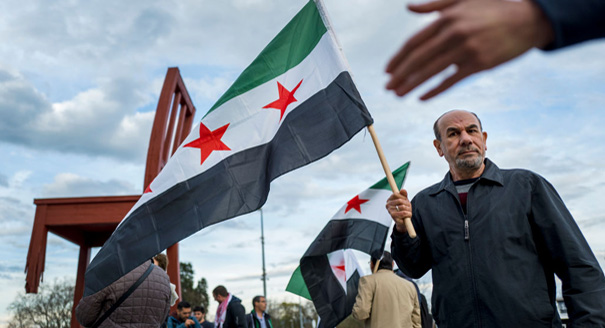Registration
You will receive an email confirming your registration.
The Syrian conflict six years on remains mired in the complexities of local, regional, and international interests, complicating ongoing efforts to achieve a political solution. The many unaddressed challenges seem to render the negotiations in Geneva and Astana a futile and endless process.
As battlefield events develop and U.S. involvement in the conflict accelerates, what prospects are left for a political solution? Are the Geneva or Astana talks viable? The Carnegie Middle East Center and the Jusoor Center for Studies held a panel discussion with Obeida Nahas, Mohamad Sarmini, and Yezid Sayigh.
Speakers
Obeida Nahas is the president of the National Renewal Movement.
Mohamad Sarmini is the director of the Jusoor Center for Studies.
Yezid Sayigh is a senior research fellow at the Carnegie Middle East Center.
Moderator
Maha Yahya is the director of the Carnegie Middle East Center in Beirut.
